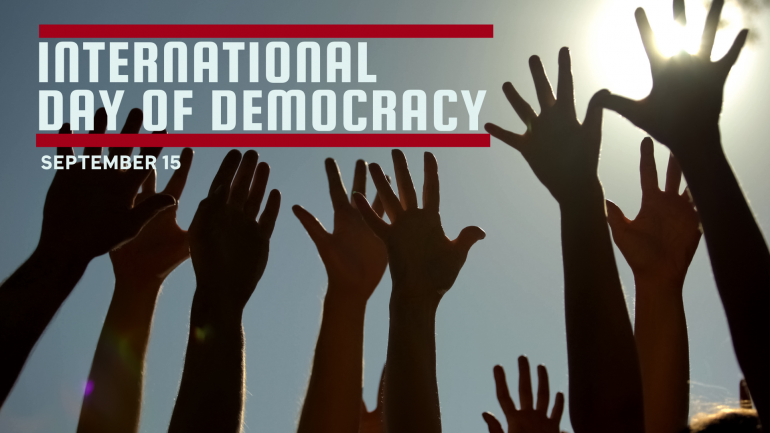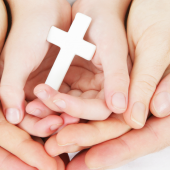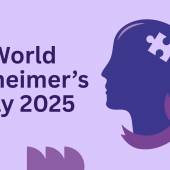International Day of Democracy

The International Day of Democracy provides an opportunity to review the state of democracy in the world. It is easy for people who live in a free society to take their freedoms for granted.
When freedom is absent, life includes unimaginable challenges that are often incomprehensible.
Today, let’s reflect on the history of democracy around the world; thank those who influenced the development of government in each country, and look for opportunities to promote and protect our own nation’s democracy.
The International Day of Democracy is celebrated around the world on September 15 each year.
It was established through a resolution passed by the United Nations General Assembly in 2007, encouraging governments to strengthen and consolidate democracy, and the First International Day of Democracy was celebrated in 2008.
It is a day that highlights the importance of the participation of all people for the proper functioning of a democracy.
Democracy is as much a process as a goal, and only with the full participation of and support by the international community, national governing bodies, civil society, and individuals can the ideal of democracy be made into a reality to be enjoyed by everyone and everywhere.
The values of freedom, respect for human rights, and the principle of holding periodic and genuine elections by universal suffrage are essential elements of democracy. In turn, democracy provides the natural environment for the protection and effective realization of human rights and the welfare of the people at large.
These values are embodied in the Universal Declaration of Human Rights and further developed in the International Covenant on Civil and Political Rights, which enshrines a host of political rights and civil liberties underpinning meaningful democracies.
The cornerstones of democracy include freedom of assembly, association, property rights, freedom of religion and speech, inclusiveness and equality, citizenship, consent of the governed, voting rights, freedom from unwarranted governmental deprivation of the right to life and liberty, and minority rights.
On observing this day, individuals and organizations may work together to review democracy's status and hold events to raise awareness of democracy. The events may include conferences, discussions, and social media campaigns, as well as the distribution of leaflets, posters, and flyers.
Each year, the International Day of Democracy commemoration focuses on a specific theme identified and suggested by the United Nations.
As we reflect on our own freedoms and consider the country’s current state of democracy, take inventory of how many ways we participate in the collective decision-making of a country and support the ideals of democracy.
A lack of democracy can lead to a lack of rights or a voice, and this impacts human rights as set out by the United Nations. Democracy is a fundamental element of a safe and peaceful society.
Peace, prosperity, and freedom are the blessings of every democracy.
Radio Veritas Asia (RVA), a media platform of the Catholic Church, aims to share Christ. RVA started in 1969 as a continental Catholic radio station to serve Asian countries in their respective local language, thus earning the tag “the Voice of Asian Christianity.” Responding to the emerging context, RVA embraced media platforms to connect with the global Asian audience via its 21 language websites and various social media platforms.














